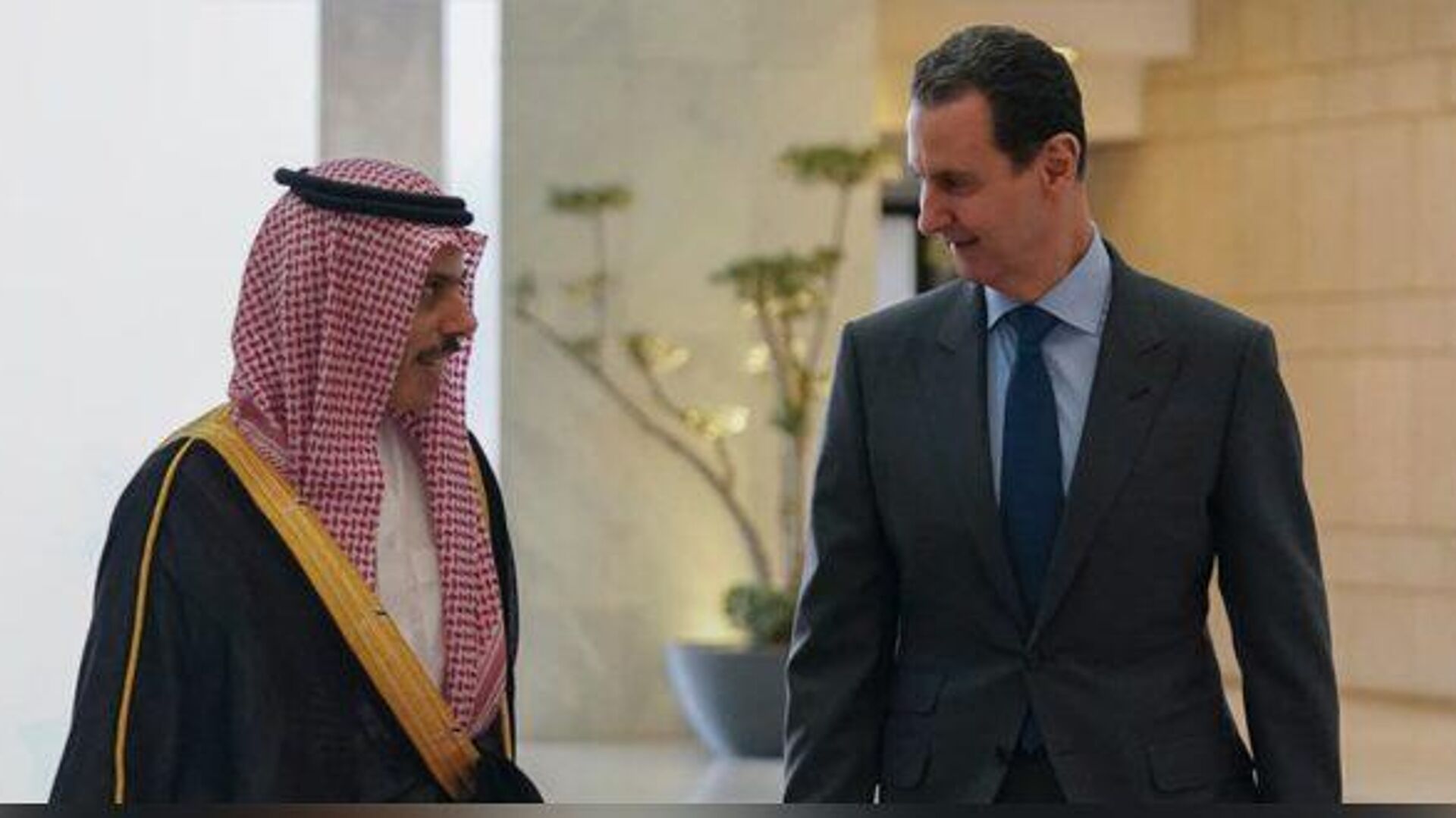https://sputnikglobe.com/20230420/mideast-restores-regional-relations-as-us-bumped-out-1109693279.html
MidEast Restores Regional Relations Because It Can't Depend on US Anymore
MidEast Restores Regional Relations Because It Can't Depend on US Anymore
Sputnik International
Rania Khalek, journalist and influencer, thinks reestablishing truce in relations between Middle East regimes contributes to their own national interests and singalises the decline of US Hegemony, as they now rely on China and Russia brokering negotiations between arabian states.
2023-04-20T17:36+0000
2023-04-20T17:36+0000
2023-04-20T17:36+0000
world
syria
syrian war
saudi arabia
diplomatic ties
bashar al-assad
middle east
us
https://cdn1.img.sputnikglobe.com/img/07e7/04/12/1109635410_7:0:594:330_1920x0_80_0_0_b18e0495aca80d3641d6e07088ada2a4.jpg
Saudi Arabia has taken the lead in an effort to reintegrate Syria into the Arab League. This, the expert told Sputnik, is peculiar given that Saudi Arabia played a significant role in kicking Syria out of the Arab League in the first place. The kingdom, however, is first to seek the repairing of its relationship with Syria since 2011.Khalek noted that the Chinese involvement in Middle East politics shows how dramatically regional politics have shifted in recent years as most of the negotiations, she said, were brokered by Beijing, including "a bit of truce" between previous rivals Saudi Arabia and Iran. Meanwhile, American overvision or even any grade of involvement in these talks is not observed, while China stands out as a neutral arbiter. Beijing, unlike Washington, "doesn't interfere in elections or tell countries who should and shouldn't be their leader." This is one of the main reasons why countries such as China and Russia are chosen as brokers.The podcaster went on to argue that the CIA expressed frustration over the announced truce deal between Tehran and Riyadh, noticing that: "the US feels blindsided by this deal" and the fact that it was overseen by the Chinese. She believes Saudi Arabia is looking to balance among powerful players: "in a growing multipolar era, the Saudis are trying to maintain good relations with everybody."Finally, she added that sanctions on Syria imposed by the US completely ruined the economy of this Middle East country, due to the US having overwhelming economic influence. The sanctions, however, were completely illegal by international law, as the US had no legitimate right to intervene into Syria's internal policy.For more in-depth analysis, check out our radio show By Any Means Necessary.
https://sputnikglobe.com/20210625/us-threatens-arab-states-with-sanctions-if-they-choose-to-normalize-ties-with-syria---report-1083243382.html
syria
saudi arabia
Sputnik International
feedback@sputniknews.com
+74956456601
MIA „Rossiya Segodnya“
2023
Sputnik International
feedback@sputniknews.com
+74956456601
MIA „Rossiya Segodnya“
News
en_EN
Sputnik International
feedback@sputniknews.com
+74956456601
MIA „Rossiya Segodnya“
Sputnik International
feedback@sputniknews.com
+74956456601
MIA „Rossiya Segodnya“
middle east, persian gulf, saudi arabia, syria, iran, china, russia, diplomatic reltaions
middle east, persian gulf, saudi arabia, syria, iran, china, russia, diplomatic reltaions
MidEast Restores Regional Relations Because It Can't Depend on US Anymore
Journalist and podcaster Rania Khalek believes that re-establishing relations between Middle Eastern governments contributes to their own national interests and signals the decline of US hegemony. The region now relies on China and Russia brokering negotiations between the Gulf states.
Saudi Arabia
has taken the lead in an effort to reintegrate Syria into the Arab League.
This, the expert
told Sputnik, is peculiar given that Saudi Arabia played a significant role in kicking Syria out of the Arab League in the first place. The kingdom, however, is first to seek the repairing of its relationship with Syria since 2011.
Khalek noted that the Chinese involvement in Middle East politics shows how dramatically regional politics have shifted in recent years as most of the negotiations, she said,
were brokered by Beijing, including "a bit of truce" between previous rivals Saudi Arabia and Iran.
Meanwhile, American overvision or even any grade of involvement in these talks is not observed, while China stands out as a neutral arbiter. Beijing, unlike Washington, "doesn't interfere in elections or tell countries who should and shouldn't be their leader." This is one of the main reasons why countries such as China and Russia are chosen as brokers.
“The fact that Saudi Arabia is turning to China to negotiate with Iran does show a huge shift in power relations in the world…” Khalek supposed.
The podcaster went on to argue that the CIA expressed frustration over the announced truce deal between Tehran and Riyadh, noticing that: "the US feels blindsided by this deal" and the fact that it was overseen by the Chinese. She believes Saudi Arabia is looking to balance among powerful players: "in a growing multipolar era, the Saudis are trying to maintain good relations with everybody."
“So that's why the Saudis, that's why the Emiratis, that's why all of these countries are trying to deal with their own neighborhood because they understand that if the US is in decline, they cannot depend on the US like the way they used to, and they have to be able to forge a stable path for the future. That might be a future where the US is not the dominant power,” the journalist emphasized.
Finally, she added that sanctions on Syria imposed by the US completely ruined the economy of this Middle East country, due to the US having overwhelming economic influence. The sanctions, however, were completely illegal by international law, as the US had no legitimate right to intervene into Syria's internal policy.
For more in-depth analysis, check out our radio show By Any Means Necessary. 


